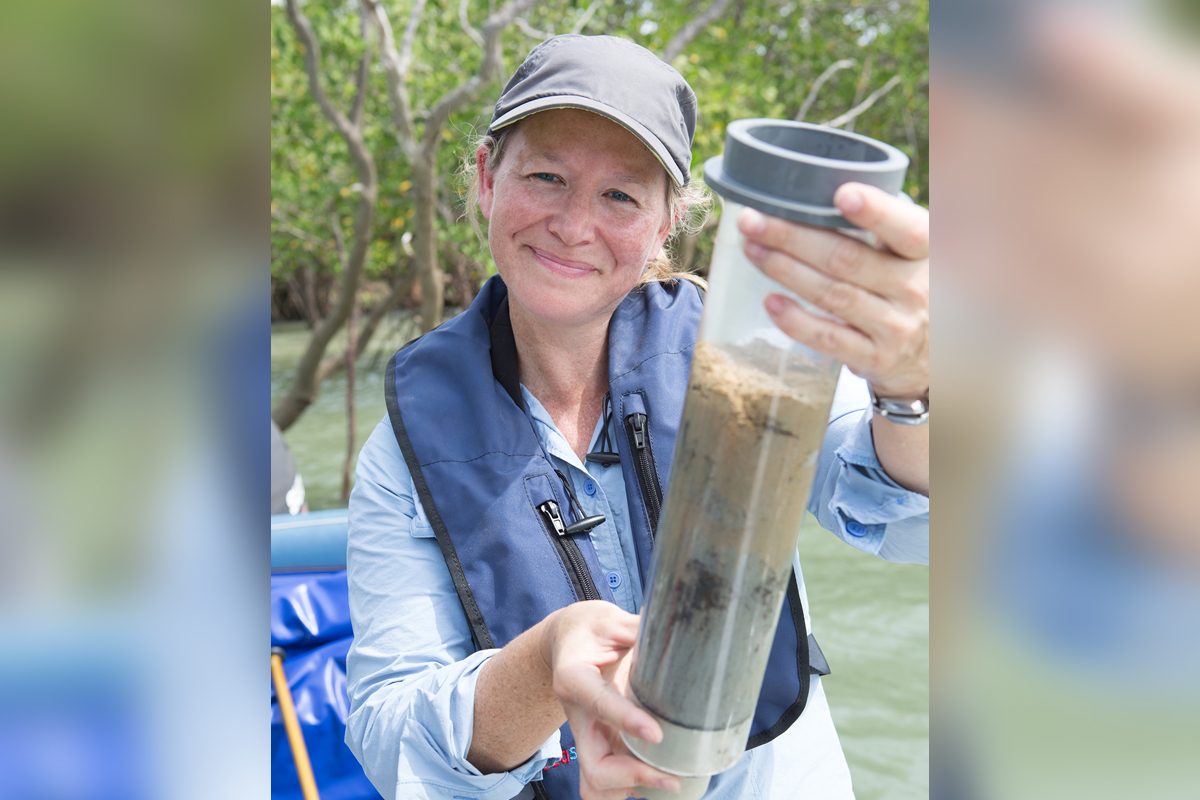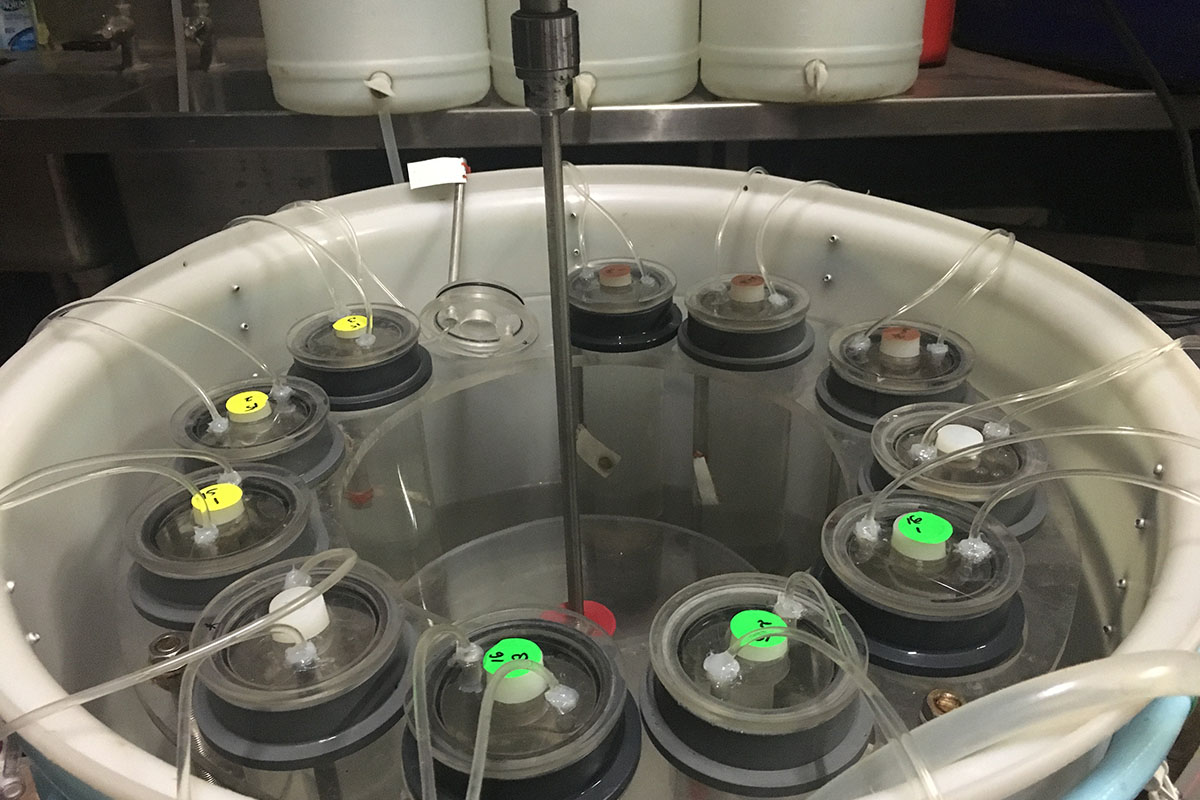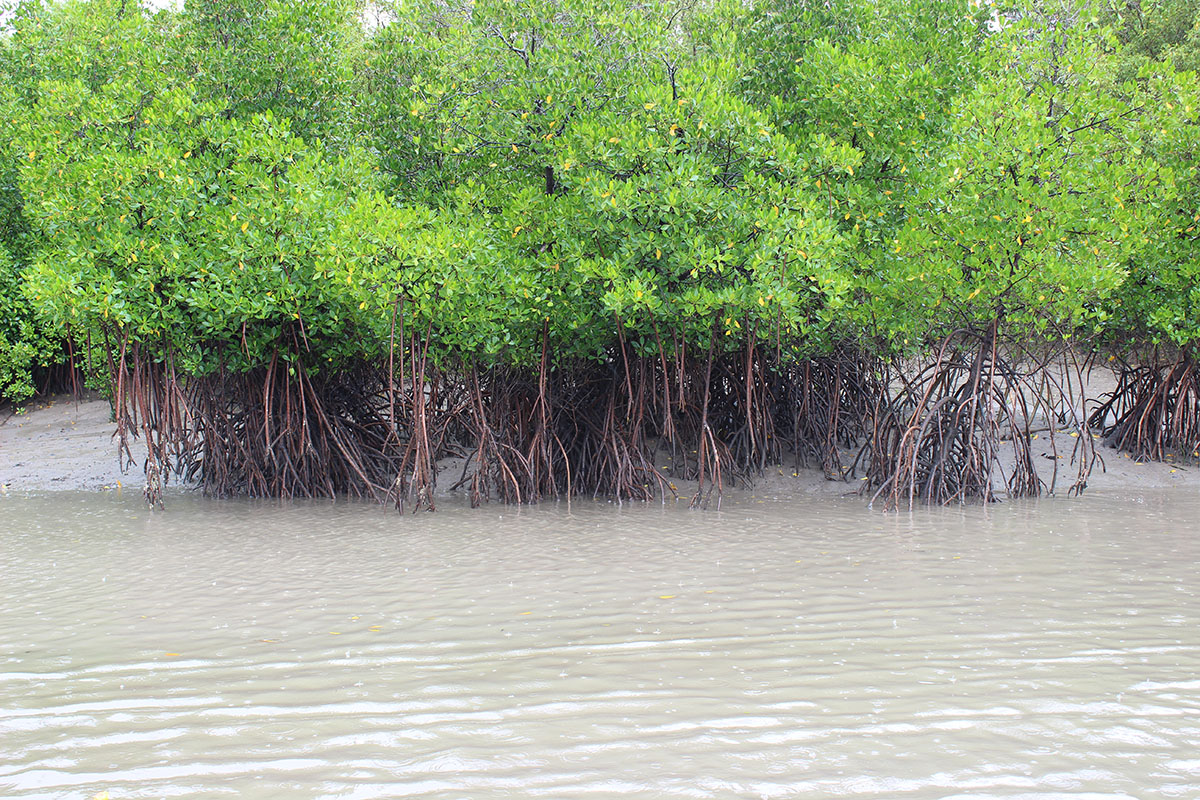Dr Julia Fortune Senior Scientist Aquatic Health
It’s a good thing Dr Julia Fortune works at Flora and Fauna’s Aquatic Group, because the health of Darwin Harbour is in good hands.
The Aquatic Group monitors water and sediment quality programs for Darwin Harbour, and also conducts research of the marine waters and sediments.
'Sediments cover about 70 per cent of the planet’s surface, forming the substrate for the largest ecosystem on Earth,' Dr Julia Fortune said.
'Sediments are not only habitat for a multitude of marine organisms but they provide an archive of our past, and support key cycles which influence water quality and global biogeochemical cycles.'
Julia spends much of her time collecting samples in and around Darwin Harbour as part of the Aquatic Group, which has undertaken surveillance, monitoring and research of the marine waters and sediments of Darwin Harbour since 2009, and has also established the first report cards on the harbour’s health.
'I grew up in Victoria and our school holidays were spent on the beaches of Victoria’s west coast, and the high country around Bright. I was a kid who spent most of my childhood outdoors exploring, and these early experiences cultivated my interest in the environment.'
Julia joined the Department in 2002, starting as a Project Officer to the first Darwin Harbour Advisory Committee, and helped develop the first Plan of Management for Darwin Harbour.
'I have always been interested in the environmental and research fields,' Julia said.
'I went to school in the western suburbs of Melbourne, which was a very working class community at the time. There weren’t many opportunities for young people in terms of career choices, and so I learned very quickly that education was my ticket out.'
Julia taught Science and Environmental Studies in Victoria before deciding to go for her Master’s degree in environmental management.
Julia earned her PhD this year completing a further eight years of part-time study. She was able to integrate her research studies with her work in the Department – filling critical research gaps to support evidence based decisions.
'A big part of our work is not only understanding the complexities of aquatic health, but also the current condition that it is in. This understanding is fundamental in detecting change and setting benchmarks that inform decisions for regulation and sustainable management,' Dr Fortune said.
Julia is currently working on understanding the importance of intertidal sediments in Darwin Harbour and the role they play in processing nitrogen inputs.
'I’m fortunate to work in one of best locations in the country – and even luckier to call Darwin Harbour my office.'



